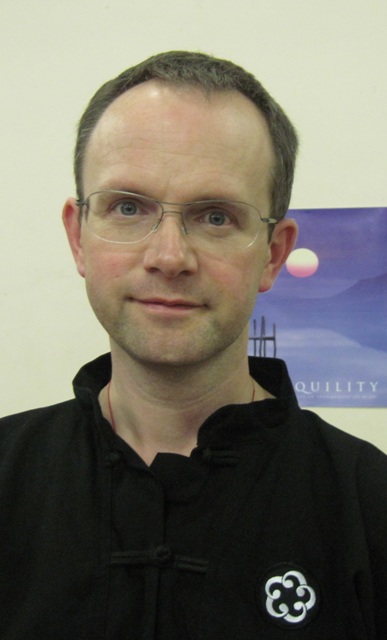“I have spared no effort to get somewhere in the world, and have become a very successful moneymaker; my efforts in that direction have produced the results I wanted. I have also tried hard to make a happy affair of my family life, but you know how it is. Family life is not the same as making money or running an industry. One deals with human beings in business, but it is at a different level. At home there is a great deal of friction with very little to show for it, and one’s efforts in this field only seem to increase the mess. I am not complaining, for that is not my nature, but the marriage system is all wrong. We marry to satisfy your sexual urges, without really knowing anything about each other; and though we live in the same house and occasionally and deliberately produce a child, we are like strangers to each other, and the tension that only married people know is always there. I have done what I think is my duty, but it has not produced the best results, to put it mildly. We are both dominant and aggressive people, and it is not easy. Our efforts to cooperate have not brought about a deep companionship between us. Though I am very interested in psychological matters, it has not been of great help, and I want to go much more deeply into this problem.”
The sun had come out, the birds were calling, and the sky was clear and blue after the storm.
What do you mean by effort?
“To strive after something. I have striven after money and position, and I have won both. I have also striven to have a happy family life, but this has not been very successful; so now I am struggling after something deeper.”
We struggle with an end in view; we strive after achievement; we make a constant effort to become something, positively or negatively. The struggle is always to be secure in some way, it is always towards something or away from something. Effort is really an endless battle to acquire, is it not?
“Is it wrong to acquire?” We shall go into that presently; but what we call effort is this constant process of travelling and arriving, of acquiring in different directions. We get tired of one kind of acquisition, and turn to another; and when that is gathered, we again turn to something else. Effort is a process of gathering knowledge, experience, efficiency, virtue, possessions, power, and so on; it is an end less becoming, expanding, growing. Effort towards an end, whether worthy or unworthy, must always bring conflict; conflict is antagonism, opposition, resistance. Is that necessary?
“Necessary to what?”
Let us find out. Effort at the physical level may be necessary; the effort to build a bridge, to produce petroleum, coal, and soon, is or may be beneficial; but how the work is done, how things are produced and distributed, how profits are divided, is quite another matter. If at the physical level man is used for an end, for an ideal, whether by private interests or by the State, effort only produces more confusion and misery. Effort to acquire for the individual, for the State, or for a religious organization, is bound to breed opposition. Without understanding this striving after acquisition, effort at the physical level will inevitably have a disastrous effect on society.
Is effort at the psychological level – the effort to be, to achieve, to succeed – necessary or beneficial?
“If we made no such effort, would we not just rot, disintegrate?”
Would we? So far, what have we produced through effort at the psychological level?
“Not very much, I admit. Effort has been in the wrong direction. The direction matters, and rightly directed effort is of the greatest significance. It is because of the lack of right effort that we are in such a mess.”
So you say there is right effort and wrong effort, is that it? Do not let us quibble over words, but how do you distinguish between right and wrong effort? According to what criterion do you judge? What is your standard? Is it tradition, or is it the future ideal, the `ought to be’?
“My criterion is determined by what brings results. It is the re- sult that is important, and without the enticement of a goal we would make no effort.”
If the result is your measure, then surely you are not concerned with the means; or are you?
“I will use the means according to the end. If the end is happiness, then a happy means must be found.”
Is not the happy means the happy end? The end is in the means, is it not? So there is only the means. The means itself is the end, the result.
“I have never before looked at it this way, but I see that it is so.”
We are inquiring into what is the happy means. If effort produces conflict, opposition within and without, can effort ever lead to happiness? If the end is in the means, how can there be happiness through conflict and antagonism? If effort produces more problems, more conflict, it is obviously destructive and disintegrating. And why do we make effort? Do we not make effort to be more, to advance, to gain? Effort is for more in one direction, and for less in another. Effort implies acquisition for oneself or for a group, does it not?
“Yes, that is so. Acquiring for oneself is at another level the acquisitiveness of the State or the church.”
Effort is acquisition, negative or positive. What is it, then, that we are acquiring? At one level we acquire the physical necessities, and at another we use these as a means of self-aggrandizement; or, being satisfied with a few physical necessities, we acquire power, position, fame. The rulers, the representatives of the State, may live outwardly simple lives and possess but few things, but they have acquired power and so they resist and dominate.
“Do you think all acquisition is baneful?”
Let us see. Security, which is having the essential physical needs, is one thing, and acquisitiveness is another. It is acquisitiveness in the name of race or country, in the name of God, or in the name of the individual, that is destroying the sensible and efficient organization of physical necessities for the well being of man. We must all have adequate food, clothing and shelter, that is simple and clear. Now, what is it that we are seeking to acquire, apart from these things?
One acquires money as a means to power, to certain social and psychological gratifications, as a means to the freedom to do what one wants to do. One struggles to attain wealth and position in order to be powerful in various ways; and having succeeded in outer things, one now wants to be successful, as you say, with regard to inner things.
What do we mean by power? To be powerful is to dominate, to overcome, to suppress, to feel superior, to be efficient, and soon.
Consciously or unconsciously the ascetic as well as the worldly person feels and strives for this power. power is one of the completest expressions of the self, whether it be the power of knowledge, the power over oneself, worldly power, or the power of abstinence. The feeling; of power, of domination, is extraordinarily gratifying. You may seek gratification through power, another through drink, another through worship, another through knowledge, and still another through trying to be virtuous. Each may have its own particular sociological and psychological effect, but all acquisition is gratification. Gratification at any level is sensation, is it not? We are making effort to acquire greater or more subtle varieties of sensation, which at one time we call experience, at another knowledge, at another love, at another the search for God or truth; and there is the sensation of being righteous, or of being the efficient agent of an ideology. Effort is to acquire gratification, which is sensation. You have found gratification at one level, and now you are seeking it at another; and when you have acquired it there, you will move to another level, and so keep going. This constant desire for gratification for more and more subtle forms of sensation, is called progress, but it is ceaseless conflict. The search after ever wider gratification is without end, and so there is no end to conflict antagonism, and hence no happiness.
“I see your point. You are saying that the search for gratification in any form is really the search for misery. Effort towards gratification is everlasting pain. But what is one to do? Give up seeking gratification and just stagnate?”
If one does not seek gratification, is stagnation inevitable? Is the state of non-anger necessarily a lifeless state? Surely, gratification at any level is sensation. Refinement of sensation is only the refinement of word. The word, the term, the symbol, the image, plays an extraordinarily important part in our lives, does it not? We may no longer seek the touch, the satisfaction of physical contact, but the word, the image becomes very significant.
At one level we gather gratification through crude means, and at another through means that are more subtle and refined; but the gathering of words is for the same purpose as the gathering of things, is it not? Why do we gather?
“Oh, I suppose it is because we are so discontented, so utterly bored with ourselves, that we will do anything to get away from our own shallowness. That is really so – and it just strikes me that I am exactly in that position. This is rather extraordinary!”
Our acquisitions are a means of covering up our own emptiness; our minds are like hollow drums, beaten upon by every passing hand and making a lot of noise. This is our life, the conflict of never-satisfying escapes and mounting misery. It is strange how we are never alone, never strictly alone. We are always with something with a problem, with a book, with a person; and when we are alone, our thoughts are with us. To be alone, naked, is essential. All escapes, all gatherings, all effort to be or not to be, must cease; and then only is there the aloneness that can receive the alone, the measureless.
“How is one to stop escaping?”
By seeing the truth that all escapes only lead to illusion and misery. The truth frees; you cannot do anything about it. Your very action to stop escaping is another escape. The highest state of inaction is the action of truth.


